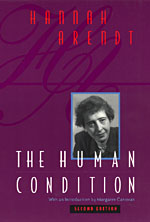
With today’s consideration of Academic Writing as Christian Action, Dr. Royce Francis wraps up his Masterclass in writing. I have been inspired by his weaving together of theological reflection and practical suggestions on becoming a skilled writer in general and within one’s field. Furthermore, his action points have stimulated me to press on in my own writing. I pray that they have done and will do likewise for many Emerging Scholars. After reading today’s post, click here to review “the classes” and connect with some peers to start a writing group this summer 🙂 To God be the glory! ~ Tom Grosh IV, Associate Director, Emerging Scholars Network
Scripture Focus
Then God said, “Let us make man in our image, after our likeness; and let them have dominion over the fish of the sea, and over the birds of the air, and over the cattle, and over all the earth, and over every creeping thing that creeps upon the earth.” So God created man in his own image, in the image of God he created him; male and female he created them. And God blessed them, and God said to them, “Be fruitful and multiply, and fill the earth and subdue it; and have dominion over the fish of the sea and over the birds of the air and over every living thing that moves upon the earth.” —â€Genesis 1:26-28, RSV
Reflection
Now that we have approached the truth in love, and have explored the role of academic writing in worship, we are prepared to discuss the role of our writing in Christian action.

When I think of action, I am impressed by Hannah Arendt’s theory of action described in The Human Condition. In The Human Condition, Arendt describes three fundamental components of human life: labor, work, and action. Labor are those things that enable physical life—provision of food, shelter, etc. Work are those things that exhibit human dominion over the world; that is, things that make the world suitable for human habitation. Action is, according to Arendt, the highest component of human life. Action refers to the ability of humans to come together to bring forth something totally new despite the plurality inherent to the human condition. Action requires revelation and participation: revelation of the identity of individuals who mutually engage one another in introducing the previously non-existent; and participation in the evaluation and actualization of the new thing that has been brought forth. Let us discuss two aspects of Arendt’s theory of action: plurality and speech.
Action involves the mutual revelation and participation of other people. It requires revelation and participation because of the plurality of the human condition. By plurality, Arendt is referring to equality and distinction—that is, each person is equal to one another and can relate to one another, but no person is interchangeable with another. In fact, this is precisely the state of the one who is in the body of Christ. In Romans 12:5 (NIV), we read “so in Christ we, though many, form one body, and each member belongs to all the others.” The members exist in plurality with one another. Each member must be able to understand one another so that the body can dwell in unity; however, this unity does not mean that each member is dispensable or replaceable. Unfortunately, too many of us have treated ourselves, our brothers, and our sisters called to academic work as dispensable. We have failed to grasp the criticality of the contributions of academics to the body of Christ, and we have failed to view our work as integral to “equipping [Christ’s] people for works of service, so that the body of Christ may be built up until we reach unity in the faith and in the knowledge of the son of God…” (Ephesians 4:12-13, NIV).
Perhaps it is even more important that we recognize the role of speech in human action. To Arendt, action is speech because speech is the medium through which we reveal ourselves to each other while participating in the evaluation and actualization of the new things being accomplished. Could this be one of the most critical ways we participate in the image of God? In the beginning, in our Scripture focus, we find God speaking new things into existence. In Arendt’s conceptualization of human action, this is precisely the way that new things come into existence through us as well—through speech. Human action involves speech that leads to the creation of entirely new, unexpected things. This is why the academic vocation—from a Christian perspective—requires obedience, love, and worship before it can become action. Human action apart from God produces novelties that decay and eventually are destroyed. On one hand, they pass away into silence as the institutions they bring forth become obsolete. On the other hand, they can be violently overturned as human society attempts to use violence to bring new acts into existence in place of the old.
Christian action is something that extends beyond human action. In our Scripture focus, the very first instance of action is divine action—the creation of humanity. God comes together, in plurality amongst the Father, Son, and Spirit, to bring forth something totally unexpected into His Creation—Humanity. We are the product of the first action. And we are commanded to join with God in divine action. We are called to join with God in speaking new things into existence. And, fundamentally, that is what your writing as a Christian academic accomplishes. It is speech that joins with God in divine action.
I am not sure that Christian action looks very much different from human action. However, we understand that it is more powerful, has greater endurance, and has a greater reward. Christian action is more powerful because its novelty extends to the heavens. It has greater endurance because it establishes itself among the principalities that govern the cosmos. And it has a greater reward because Christian action wins the approval of our Father in heaven.
Action
To complete this last post in this series, I want to thank you for the opportunity to share with you on writing as a unique component of your Christian pilgrimage. It has been my pleasure to share with you some of my own thoughts on how the academic call is filled with the life God has called us to in Christ. So in lieu of a practice, I leave you with a very common benediction heard in churches across denominations, races or ethnic groups, and economic classes:
Now unto him that is able to keep you from falling, and to present you faultless before the presence of his glory with exceeding joy, To the only wise God our Saviour, be glory and majesty, dominion and power, both now and ever. Amen. —Jude 1:24-25, KJV
Thank you for this opportunity to share with you. May your work increase in power and dominion in Christ in the places where He is calling you.
Peace and Blessing.
Royce is an associate professor of engineering management and systems engineering at the George Washington University. He conducts and teaches under the broad theme “SEEDâ€: Strategic [urban] Ecologies, Engineering, and Decision making. His research and teaching interests include infrastructure sustainability and resilience measurement, risk analysis, and drinking water systems analysis. Royce is a member of the American Society of Civil Engineers (ASCE), and the Society for Risk Analysis (SRA).

Thank you for taking the time to write this series. I am challenged by the breadth of your reading and ability to weave together so many different fields into one coherent whole. May God bless your future work!
Gerry, thank you very much for your kind and encouraging thoughts and prayers. I am glad you were able to interact with the posts and be blessed by them. I look forward to learning from you more in the future as your book project proceeds. Sincerely, Royce